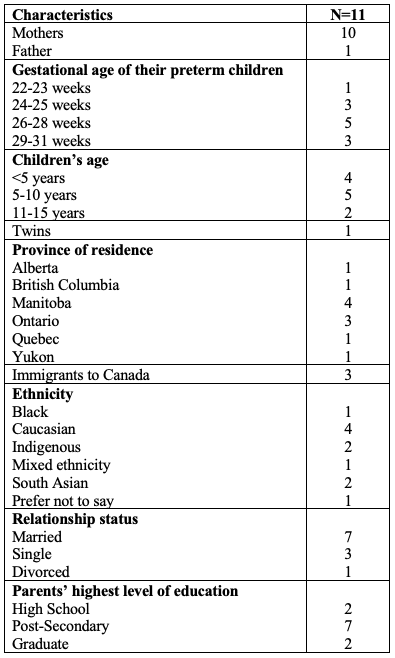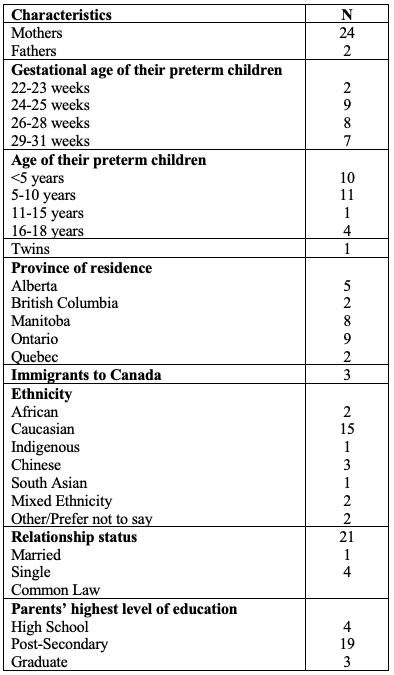Mental Health 4
Session: Mental Health 4
098 - From Surviving to Thriving: Canadian Parents’ Call for their Mental Health and Other Supports after NICU Discharge
Monday, April 28, 2025
7:00am - 9:15am HST
Publication Number: 98.4966
Deepak Louis, Max Rady College of Medicine, Rady Faculty of Health Sciences, University of Manitoba, Winnipeg, MB, Canada; Urvi Chaudhari, Max Rady College of Medicine, Rady Faculty of Health Sciences, University of Manitoba, Winnipeg, MB, Canada; Amy E. Clark, Dalhousie University Faculty of Medicine, Winnipeg, MB, Canada; Lynda M. Moore, University of Manitoba, Sooke, BC, Canada; Gunjan Seth, Holland Bloorview Kids Rehabilitation Hospital, Toronto, ON, Canada; Karen Netzel, University of Manitoba, Arnes, MB, Canada; Priyaa Ravi, University of Manitoba, Edmonton, AB, Canada; Heather Radford, Other, Bowmanville, ON, Canada; Rebecca Pearce, CHU Sainte Justine, Montréal, PQ, Canada; Andrea Wiebe, Max Rady College of Medicine, Rady Faculty of Health Sciences, University of Manitoba, Winnipeg, MB, Canada; Kojo Mensah, University of Manitoba, Richmond Hill, ON, Canada; Torrie Crapo, University of Manitoba, Whitehorse, YT, Canada; Chelsea A. Ruth, Max Rady College of Medicine, Rady Faculty of Health Sciences, University of Manitoba, Winnipeg, MB, Canada; Kristene Cheung, Max Rady College of Medicine, Rady Faculty of Health Sciences, University of Manitoba, Winnipeg, MB, Canada; James M. Bolton, Max Rady College of Medicine, Rady Faculty of Health Sciences, University of Manitoba, Winnipeg, MB, Canada; MARSHA CAMPBELL-YEO, Dalhousie University Faculty of Health, Halifax, NS, Canada; Sapna Oberoi, Max Rady College of Medicine, Rady Faculty of Health Sciences, University of Manitoba, Winnipeg, MB, Canada; Prakesh S. Shah, Mount Sinai Hospital, Toronto, ON, Canada; Lisa M Lix, University of Manitoba, Winnipeg, MB, Canada; Allan Garland, Max Rady College of Medicine, Rady Faculty of Health Sciences, University of Manitoba, Marriotts Cove, NS, Canada; Andrew Hatala, University of Manitoba, Winnipeg, MB, Canada
.jpg)
Deepak Louis, MD, DM (he/him/his)
Associate Professor
Max Rady College of Medicine, Rady Faculty of Health Sciences, University of Manitoba
Winnipeg, Manitoba, Canada
Presenting Author(s)
Background: Parents of preterm children going home from neonatal intensive care (NICU) face unique challenges. However, there is little information about what supports they need post-NICU discharge.
Objective: This qualitative study explores parental support needs after NICU discharge, focusing on their mental health.
Design/Methods: We conducted 26 semi-structured, one-on-one interviews of parents whose preterm children were 1-18 years old and born < 32 weeks’ gestation in Canada. Interviews were conducted virtually by parent partners using an interview guide developed with their input. Data were analyzed using Constructivist Grounded Theory to identify themes related to parental support needs.
Results: The themes included parents relying on their partners, immediate family, friends and community for support. While struggling with their mental health, most parents expressed concerns about the lack of mental health support after discharge, which they felt was a significant gap in the existing healthcare system. Few parents who received mental health support on their own found it to be significantly beneficial. Some parents felt supported after joining online preterm parent groups like Facebook and the Canadian Premature Babies Foundation. Although parents thought it would be extremely helpful to connect with other preterm families in their community, there was no system to establish such connections, and only very few parents could do so. Parents desired comprehensive information during NICU discharge on what to expect about their upcoming journey with preterm children. Lack of adequate financial supports was another common theme. Some parents felt the federal financial aids (caregiver benefits, maternity benefits, child disability tax credit) did not support them enough particularly when only one parent could work and with the extra costs associated with raising a preterm child. Parents also hoped for a care plan that includes transition to home and continuity of services /support for the parents.
Conclusion(s): This study provides an understanding of the lack of social, mental health, and financial supports available to parents of preterm children after discharge from NICU. It also highlights crucial and specific areas to target support for these parents so they can thrive rather than just survive.
Demographic characteristics of the parent advisory group

Demographic characteristics of enrolled parents (N=26)

Experiences of parents of preterm children about their mental health and other supports after discharge from NICU
Table 3.pdf

